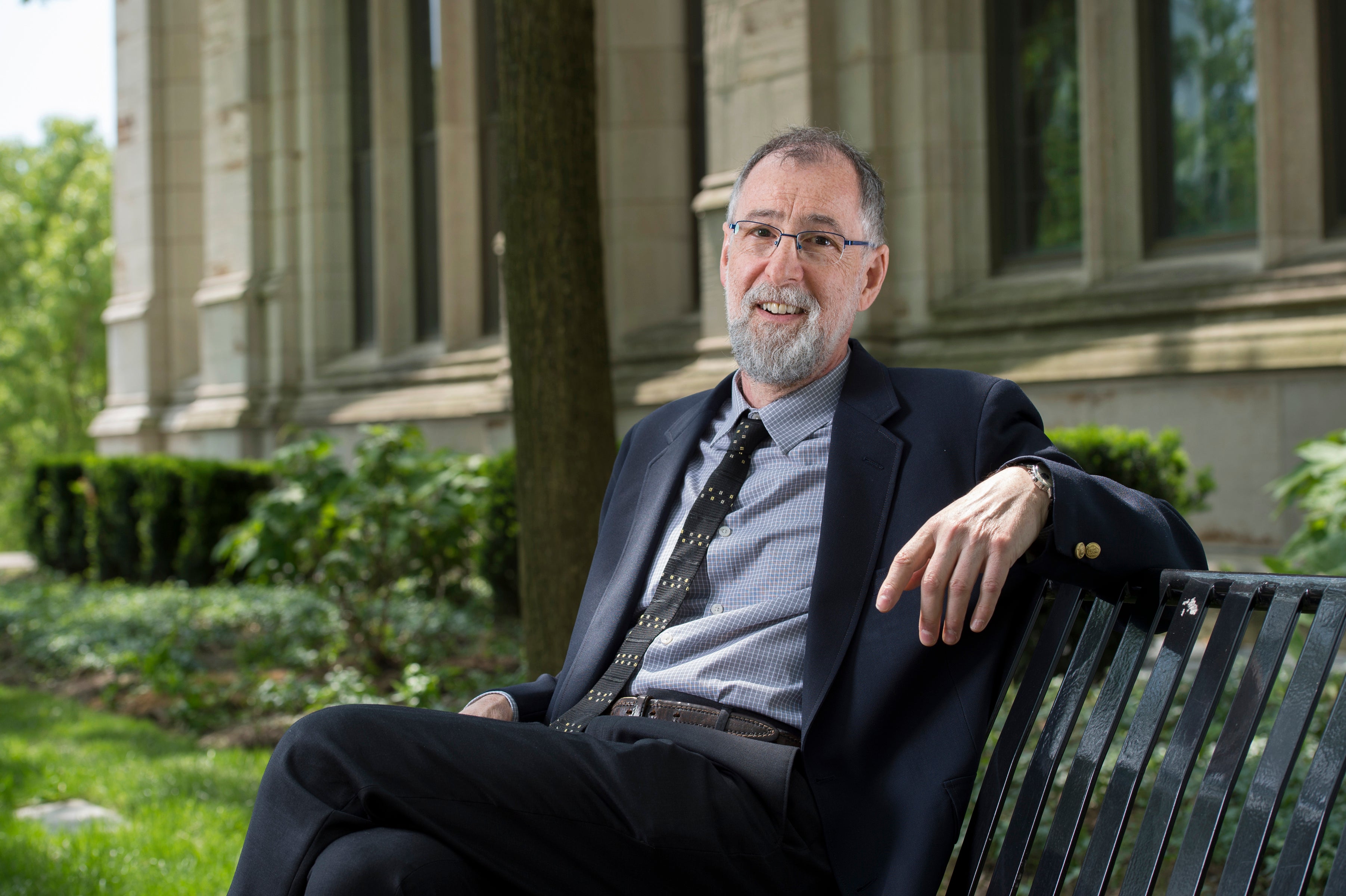
Subscribe to Pittwire Today
Get the most interesting and important stories from the University of Pittsburgh.Dean Named for Newly Created School of Computing and Information
Paul R. Cohen will lead operations for Pitt’s new School of Computing and Information, bringing with him experience that includes managing programs at the Defense Advanced Research Projects Agency (DARPA) and professional research work in artificial intelligence and cognitive science.
Cohen, who begins his new post on Aug. 1, will be at the helm of the first new school or college established at Pitt since 1995. A key element in Pitt’s strategy to support research in data and computation-intensive fields across the University, the School of Computing and Information is a multidisciplinary environment that supports discovery, innovation and entrepreneurship driven by data and technology. It will begin operations on July 1 and will enroll its first students in the fall 2017 term.
“Paul is a visionary leader who will quickly drive our School of Computing and Information to the forefront of academic excellence,” said Pitt Chancellor Patrick Gallagher. “He is also an expert collaborator and a leading authority on utilizing data, technology and information in new ways to solve some of the most challenging and complex issues facing society today.”
“Paul’s scholarship and expertise are well suited to our ambitions for the School of Computing and Information. His history of leadership in academia and government positions him well to foster the development of the school and to partner with other leaders across the University,” said Pitt Provost and Senior Vice Chancellor Patricia E. Beeson. “I know that his enthusiasm and expertise will advance the school and will help the University of Pittsburgh continue to make an impact on our community and our world.”
Since 2013, Cohen has worked as a program manager within the Information Innovation Office at the Defense Advanced Research Projects Agency (DARPA). At DARPA, he also oversees programs that address issues such as communication between humans and machines, cancer biology, extracting knowledge from text, and global and national security. The endeavors he has managed have included the Big Mechanism and the Communicating with Computers programs.
Cohen serves as a professor and was the founding director of the School of Information: Science, Technology and Arts, now the School of Information, at the University of Arizona. A professor at the University of Arizona since 2008, he also held positions at the University of Southern California from 2003 to 2008 and the University of Massachusetts from 1983 to 2003.
Paul is a visionary leader who will quickly drive our School of Computing and Information to the forefront of academic excellence.
Chancellor Patrick Gallagher
In terms of his professional research, Cohen works in artificial intelligence and cognitive science. He is particularly interested in how robots and computers can learn the meanings of words and phrases — one of his programs at DARPA focuses on communicating with computers. He has also worked on other physical foundations for language, including vision-based learning of spatial language. Additionally, Cohen has developed methods for education informatics, which apply artificial intelligence and machine learning to better engage and teach students. Cohen's recent DARPA programs focus on technology to gather large numbers of journal articles and other data into causal models of very complicated systems, such as cell signaling systems in cancer or food and water systems.
Cohen is the author of the book “Empirical Methods for Artificial Intelligence.” He was editor in chief of the International Journal of Intelligent Data Analysis, and also has been the co-editor for the International Journal of Approximate Reasoning, Artificial Intelligence for Engineering Design and Manufacturing, and Knowledge Engineering Review.
Throughout his nearly 35 year academic and professional career, Cohen has been recognized with numerous honors and distinctions. He is an elected fellow of the Association for the Advancement of Artificial Intelligence and the Engineering and Physical Sciences Research Council. In 1998, he was named a faculty fellow of the University of Massachusetts. Cohen was a councilor for the Association for the Advancement of Artificial Intelligence from 1991 to 1994.
Cohen earned his Bachelor of Arts degree in psychology at the University of California San Diego in 1977, a Masters of Arts degree in psychology at the University of California, Los Angeles in 1978 and a PhD in computer science and psychology at Stanford University in 1983.


